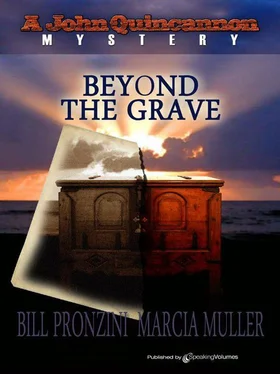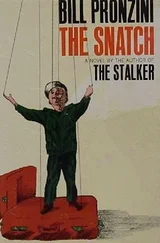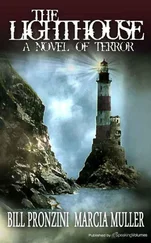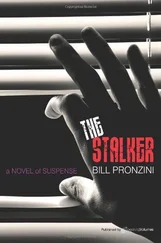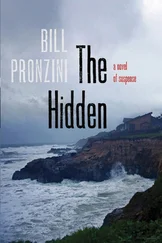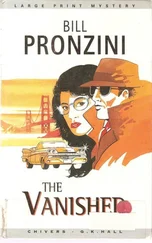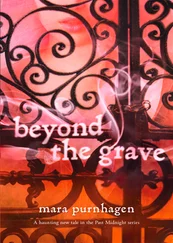Bill Pronzini - Beyond the Grave
Здесь есть возможность читать онлайн «Bill Pronzini - Beyond the Grave» весь текст электронной книги совершенно бесплатно (целиком полную версию без сокращений). В некоторых случаях можно слушать аудио, скачать через торрент в формате fb2 и присутствует краткое содержание. Год выпуска: 2011, ISBN: 2011, Издательство: Speaking volumes, Жанр: Исторический детектив, на английском языке. Описание произведения, (предисловие) а так же отзывы посетителей доступны на портале библиотеки ЛибКат.
- Название:Beyond the Grave
- Автор:
- Издательство:Speaking volumes
- Жанр:
- Год:2011
- ISBN:9781612321202
- Рейтинг книги:4 / 5. Голосов: 1
-
Избранное:Добавить в избранное
- Отзывы:
-
Ваша оценка:
- 80
- 1
- 2
- 3
- 4
- 5
Beyond the Grave: краткое содержание, описание и аннотация
Предлагаем к чтению аннотацию, описание, краткое содержание или предисловие (зависит от того, что написал сам автор книги «Beyond the Grave»). Если вы не нашли необходимую информацию о книге — напишите в комментариях, мы постараемся отыскать её.
Beyond the Grave — читать онлайн бесплатно полную книгу (весь текст) целиком
Ниже представлен текст книги, разбитый по страницам. Система сохранения места последней прочитанной страницы, позволяет с удобством читать онлайн бесплатно книгу «Beyond the Grave», без необходимости каждый раз заново искать на чём Вы остановились. Поставьте закладку, и сможете в любой момент перейти на страницу, на которой закончили чтение.
Интервал:
Закладка:
The piece of metal was half an inch long, slender, conical in shape, and hollow. He had no idea what it was-and yet, it seemed oddly and vaguely familiar. He studied it for several seconds, still could not identify it, and finally slipped it into his coat pocket. He gave his attention to the torn scrap.
It appeared to be the bottom edge of a letter or some other document-quite an old one, judging from the age-yellowed condition of the paper. It contained six complete words, all Spanish, written in a crabbed and perhaps hasty hand, for the letters were ink-smudged and not well-formed. On one line were four words, on the other, two-what appeared to be the last two lines of a page.
mas alia del sepulcro
donde Maria
Quincannon's scowl was now as ferocious as Chief of Police Vandermeer's. He put the scrap into the same pocket as the piece of metal and then, methodically, he set about gathering up and examining all the papers scattered on the floor. It took him more than an hour, and there was tension and frustration in him when he finished. The letter or document from which the scrap had been torn was no longer here, which meant that it was now in the possession of Luis Cordova's murderer. There was no question in Quincannon's mind that it was a vital document.
But his search had not been completely fruitless. He thought he knew now who had written the missing document, and why; and he thought he knew, too, how the statue of the Virgin Mary had come into Luis Cordova's possession. Several letters and an inscription in the Cordova family Bible had given him those answers.
Luis Cordova had not been born in Oaxaca, Mexico; he had been born on Rancho Rinconada de los Robles, in the year 1840. His father and mother had both been in the employ of Don Esteban, and the family had lived at the rancho's pueblo. Luis and his mother had fled to Santa Barbara the day before the siege by Fremont's troops, with the other women and children. His father, Tomas, had stayed behind to fight-and to die. It seemed clear now that Tomas Cordova had helped Don Esteban and Padre Urbano secrete the artifacts; it also seemed clear that he was not as trustworthy as they had considered him to be. He had managed to steal the statue of the Virgin Mary and to pass it on to his wife before she and Luis fled. And he had written down for her the location of the remaining artifacts, so that she or Luis might someday return for them. It was this document that was now in the murderer's hands.
But there were still unanswered questions. Had Tomas Cordova's wife returned for the cache of artifacts? Or had Luis, when he was old enough? And if they hadn't, for reasons of their own, were the artifacts still in their original hiding place, waiting to be carried away by the man who had killed Luis?
And who was that man? Who had the missing document?
Quincannon continued to scowl. He did not like cases involving murder. Nor was he fond of complex mysteries, as adept as he often was at solving them. Cerebral detection might be child's play for Sherlock Holmes; for John Frederick Quincannon it was damned hard work.
He tucked half a dozen personal letters into his coat pocket for future reference. Then, cautiously, he let himself out of the rooms, pausing among the olive branches to make certain there was no one on the boardwalk or street below before descending. The few people in the vicinity seemed to pay him no attention as he went to his horse, mounted, turned away from the dry-goods store.
Mas alia del sepulcro , he was thinking. Donde Maria . What was the significance of those two phrases? They were key phrases, he was sure, to the location of the original hiding place of the artifacts-perhaps so vital that without them, the person who had stolen the document would not be able to determine the exact location. Donde Maria . Where Maria. Where Maria what? Who was Maria?
As he rode back toward the center of town, the first phrase began to haunt him-to repeat itself in his mind in a kind of macabre litany.
Mas alia del sepulcro .
Beyond the grave.
PART V
1986
ONE
Mas alia del sepulcro. Donde Maria .
The words repeated in my mind as they must have in John Quincannon's. They echoed as I waited in the strange motel bed for sleep to come. They haunted my troubled dreams. The dreams were peopled by the vague figures of Felipe Velasquez, Luis Cordova, James Evans, Bamaby O'Hare, and Oliver Witherspoon, who spoke and moved and did various things, although I couldn't really see them. The only person who appeared perfectly clear to me was John Quincannon.
I could visualize him: a big man, maybe bearded, with a slightly ruddy complexion, possibly from a fond indulgence in drink. And I could hear him talking over the events that had transpired, speculating on what their significance might be in a low, contemplative voice. By the time the fog-filtered morning light had crept around the poorly fitting motel curtains, Quincannon and I had had quite a talk.
Who had killed Luis Cordova? And what was the meaning of mas alia del sepulcro and donde Maria ? Had Quincannon found out?
I continued mulling over these questions as I drove north toward Santa Barbara. I'd waited until most of the rush hour traffic had cleared before I'd started, but even so, it was slow traveling until I was past Van Nuys. The delay didn't bother me as much as it normally would have, however; I had other things to occupy my mind.
I was terribly disappointed that this second section of Quincannon's report had also ended abruptly. Had still more of it survived? And if so, where was it? Of one thing I was certain: If the report had survived to the present day, I would find it one way or another.
At Thousand Oaks, the freeway widened, and I put on speed as I began to descend the Conejo Grade. My attention began to wander further and further from my driving, and I resumed my imaginary dialogue with Quincannon. We discussed the problem of what he and I should do next all the way to Ventura, and it was only when I had to slam on my brakes for a slowdown caused by a closed lane that I realized how strange my internal conversation sounded-even to me.
The truth was, I'd developed an eerie connection to a man who had probably been dead for forty years or more. I wasn't viewing Quincannon or his long-ago investigation as something out of a history book. Instead I was living it along with the detective, at the same time that I was driving on this twentieth-century freeway. I could speak mentally with him, almost see and touch him. It was almost as if John Quincannon were trying to reach out of the past and tell me something.
The thought made me feel strange and a little frightened. I tried to laugh it off, blame it on my heritage from my superstitious ancestors. When that didn't work, I turned the car radio on to a country-and-western station-I'd developed a fondness for that kind of music after a trip last summer to Bakersfield, the self-proclaimed country-and-western capital of California-and tried to take my mind off 1894 by singing along to songs about present-day heartbreak and drunkenness the rest of the way to Santa Barbara.
When I arrived in town, it was time to visit Mama, so I drove directly to the hospital. I'd called her the night before from the motel, and she'd been somewhat short with me. I hoped she'd be in a better mood this morning, and when I first entered her room, it seemed my wish had been granted. She was on the phone, but she ended the conversation quickly and looked up at me with a smile.
“That was Tia Constanza,” she said.
“Funny, I was just thinking about her yesterday. How is she?”
Читать дальшеИнтервал:
Закладка:
Похожие книги на «Beyond the Grave»
Представляем Вашему вниманию похожие книги на «Beyond the Grave» списком для выбора. Мы отобрали схожую по названию и смыслу литературу в надежде предоставить читателям больше вариантов отыскать новые, интересные, ещё непрочитанные произведения.
Обсуждение, отзывы о книге «Beyond the Grave» и просто собственные мнения читателей. Оставьте ваши комментарии, напишите, что Вы думаете о произведении, его смысле или главных героях. Укажите что конкретно понравилось, а что нет, и почему Вы так считаете.
